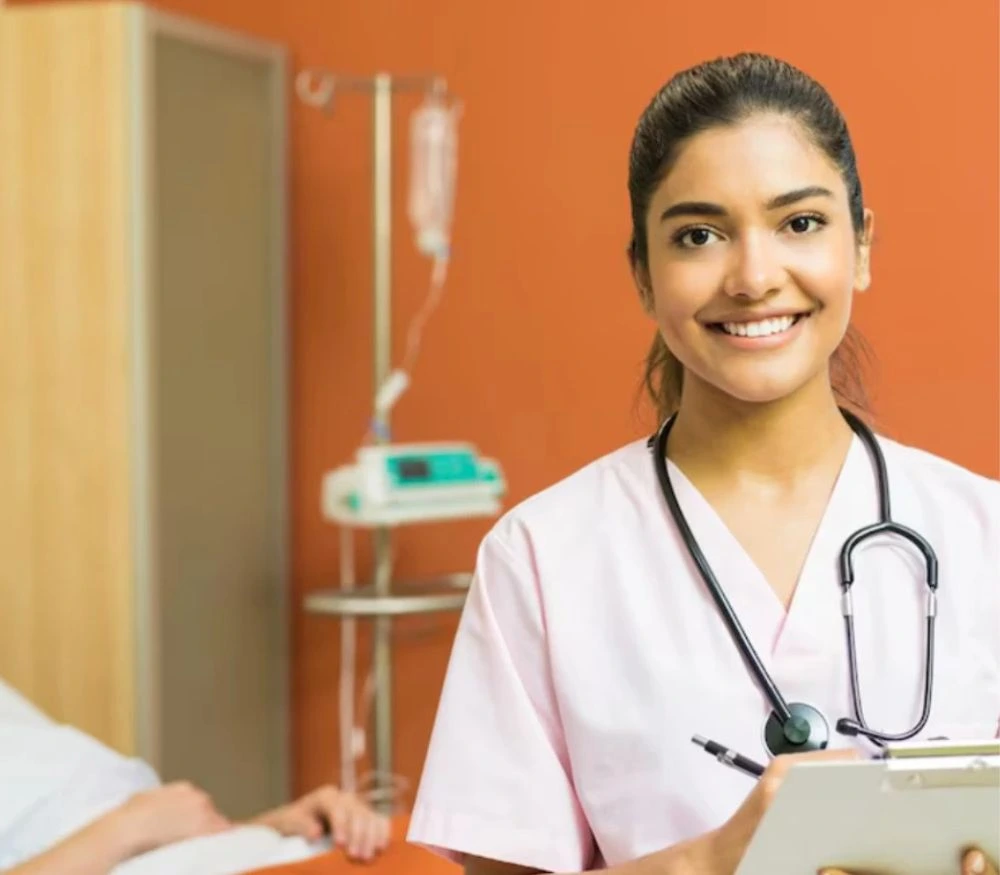Program Overview
The Bachelor of Science in Nursing (B.Sc in Nursing) is a four-year undergraduate program designed to equip students with the knowledge, skills, and practical experience needed for a successful career in healthcare.
This program of B.Sc in Nursing blends academic rigor with hands-on clinical training, preparing graduates to meet the growing demands of the global healthcare industry. With a curriculum covering medical-surgical nursing, pediatric nursing, community health, and mental health nursing, students gain a well-rounded understanding of patient care, healthcare management, and evolving medical technologies. This B.Sc in Nursing course emphasizes practical exposure through clinical rotations, internships, industry visits, and research projects in super speciality and multispeciality hospitals, ensuring real-world readiness. Graduates can explore diverse career opportunities in hospitals, public health institutions, and educational organizations, with pathways to leadership roles such as Nurse Manager, Clinical Nurse Specialist, and Nursing Educator. With a strong foundation in evidence-based practices, technology integration, and healthcare policy, our B.Sc. Nursing programs provide the ideal platform for students to thrive in this high-demand profession.


MSU Advantages
The flexible learning design of this B.sc in Nursing course also allows personalized education. This makes MSU an ideal choice for future-ready nursing professionals. Explore some of the advantages of studying B.Sc in Nursing at MSU:
Program aligned to NEP 2020
Focus on Outcome Based Education
Industry-Aligned Curriculum
Pathology labs, critical care unit, OT, and state-of-the-art polyclinic
70% Curriculum includes Skill Component
Hands-On Learning
Learn from seasoned healthcare professionals
Immersive Industry Exposure through industry visits, guest lectures, and networking opportunities
Opportunity to ‘Learn and Earn’ from hospital organizations and earn a great stipend.
Visit renowned hospitals for On-Job-Training
Engage with industry experts providing invaluable insights and real-world perspectives

Do-Experience-Learn
Experience hands-on learning with our comprehensive B.Sc in Nursing program, designed to equip you with the essential skills and practical knowledge needed for a successful career in healthcare—where theory meets practice

.webp)




Eligibility Criteria
10+2 (Science)
Academic Framework
A curriculum designed to build core nursing skills, paired with a clear pathway to diverse global careers
Steps to Follow for Application





Program Specific Outcomes
A Graduate of B.Sc. in Nursing should be able to:
PSO 1
Demonstrate the ability to provide comprehensive, patient-centered nursing care across diverse healthcare settings, ensuring the promotion of health, prevention of illness, and management of patient care.
PSO 2
Analyze and apply nursing theories, healthcare policies, and ethical principles to deliver safe, evidence-based, and culturally competent care while adhering to legal and professional. standards.
PSO 3
Utilize critical thinking, clinical reasoning, and technological tools to assess, plan, implement, and evaluate nursing interventions that improve patient outcomes and healthcare efficiency.
PSO 4
Engage in lifelong learning, professional development, and research-based practice to contribute to healthcare quality improvement, leadership roles, and advocacy in the nursing profession.
Our Industry Partners
Leading industry partners to provide real world hands-on exposure






Find Quick Answers to Your Concerns


